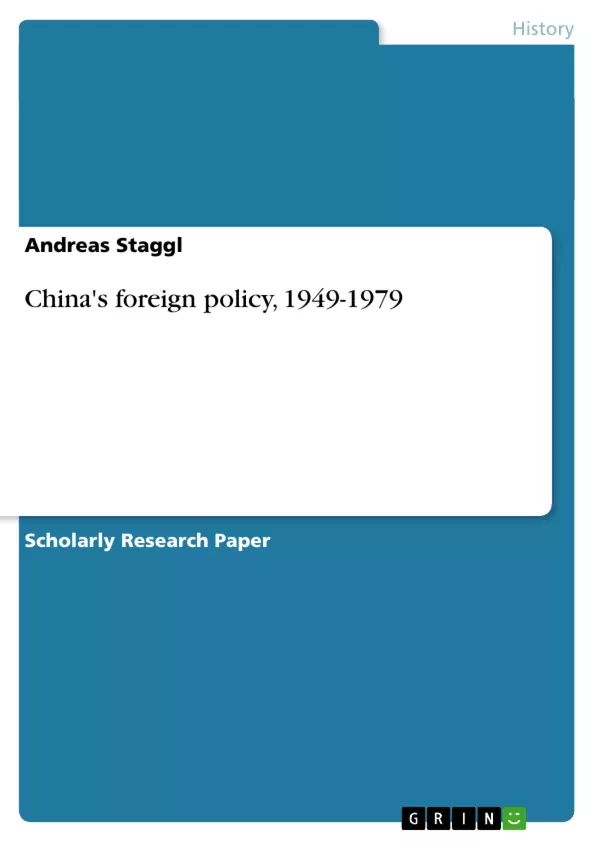Entwicklung der chinesischen Außenpolitik seit der kommunistischen MAchtübernahme. Bruch mit dem Westen - Annäherung an die UdSSR - Bruch mit den Sowjets - Aufnahme diplomatischer Beziehungen mit den USA
Inhaltsverzeichnis (Table of Contents)
- Part ONE: Essay
- Introduction
- 1 China's decision to lean to one side
- Korean War
- A stronger China: The Geneva Conference
Zielsetzung und Themenschwerpunkte (Objectives and Key Themes)
This essay explores the evolution of China's international relations between 1949 and 1979. It examines the motives behind key foreign policy decisions during this period, analyzing the factors that led to China's initial alliance with the Soviet Union, its subsequent role as a leader of the Third World, and its eventual rapprochement with the United States.
- China's decision to lean towards the Soviet Union after the Chinese Civil War
- The development of the Sino-Soviet relationship and its impact on China's foreign policy
- China's emergence as a leader of the Third World
- The Sino-Soviet split and its implications for China's international relations
- The influence of domestic issues, such as the Cultural Revolution and the Vietnam War, on China's foreign policy
Zusammenfassung der Kapitel (Chapter Summaries)
The essay begins by examining the historical context of China's decision to lean towards the Soviet Union after the Chinese Civil War. It discusses the motivations behind Mao Zedong's decision, including the need for economic and military assistance from the Soviet Union and the perceived threat of the United States. The chapter explores the Mao-Stalin summit of 1949/50 and its significance in solidifying the Sino-Soviet alliance.
The second chapter focuses on the Korean War and its impact on China's relationship with both the Soviet Union and the United States. It analyzes the reasons behind China's decision to enter the war, including national security concerns and the desire to prevent US influence in the region. The chapter also discusses the degree to which the Soviet Union pressured China to participate in the conflict.
The final chapter examines the Geneva Conference of 1954 and its significance in China's emergence as a player on the global stage. It explores the conference's impact on the communist regime and its role in promoting the country's international standing.
Schlüsselwörter (Keywords)
The essay focuses on the following key terms and concepts: Sino-Soviet relations, Cold War, Third World, Mao Zedong, Geneva Conference, Korean War, Cultural Revolution, and US-China relations.
- Quote paper
- Andreas Staggl (Author), 2010, China's foreign policy, 1949-1979, Munich, GRIN Verlag, https://www.grin.com/document/191649




